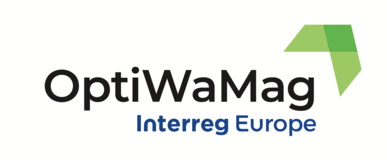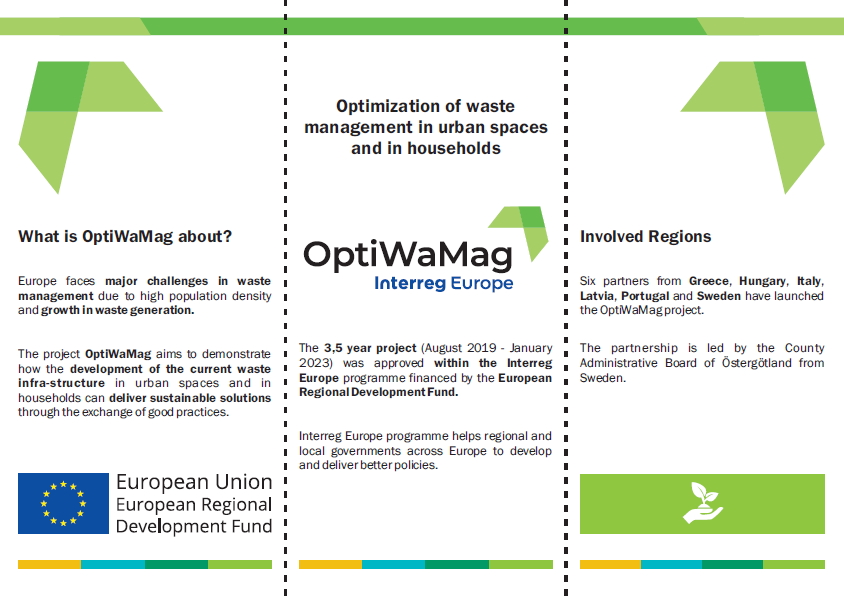On the first day of the meeting the project partners from Sweden, Portugal, Hungary, Italy and Greece got acquainted with Latvia's experience in waste management, which also included virtual presentations.
During the first part of the meeting Natālija Cudečka-Puriņa, Head of the Environmental Quality and Waste Management Division of the Latvian Ministry of Environmental Protection and Regional Development, introduced the audience to the tasks set for waste management in Latvia as an EU member state and solutions included in the National Waste Management Plan 2021-2028, as well as the challenges that need to be overcome to achieve the goal set. To ensure a continuous increase in the recycling of municipal waste, the state must ensure separate collection of glass, plastic and paper. As early as February 2022, the collection of packaging for soft drinks through the deposit system must begin. And in 2023 the collection of sorted biological waste must start throughout the country. In this case it is important not only to collect bio-waste, but also to recycle it properly. The topicality of the collection of hazardous waste, such as medicines, in local governments was also emphasized.
RTU experts had compiled practical examples of what has already been done in Latvia in several video stories. RTU introduced the project partners with the first video presentation on the latest municipal waste management methods and environmental education activities in Latvia (see video below). The video presentation at RTU was specially designed for the OptiWaMag Latvia meeting and included interviews with waste management experts. The video presentation showed the new bio-waste processing plant in Riga region “Getliņi”, deep containers used for separate waste collection in Cēsis, as well as the operation of Daibe – one of the largest municipal waste landfills in the North Vidzeme region. An example of the operation of the training center "Urda" in North Vidzeme seemed interesting and engaging to project partners.
During the meeting RTU introduced other project partners with the new pilot project TESLA LAB which is being implemented by two partners of the OptiWaMag project – RTU (Latvia) and Municipality of Casalgrande (Italy). This Pilot Action TESLA LAB is dedicated to testing new innovative approaches for introducing circular economy principle 3R principle (Reuse, Reduce, Recycle) in the waste management practices of Latvia. One of the first Reuse centers in Latvia has been established in the landfill “Ķīvītes” in the South Kurzeme region, where residents can bring and leave things that are no longer usable, as well as choose and pick up other things that are useful to them. Similar centers have already been set up in several of the partner regions. There is a similar Reuse center in the Italian municipality of Casalgrande and project experts plan to explore it. To get the residents of Liepaja acquainted with the principle of reuse applied in such centers this year on October 9th RTU experts organized a public information and involvement activity in Liepaja as TESLA LAB “Repair Cafe” (a video about this activity was presented during the meeting).
The partners' meeting continued with an active exchange of experiences and discussions on regional Action Plans. Each partner presented their draft Action Plan or ideas for the activities planned under the Action Plan, the benefits of adopting good practices, etc. The partners thus exchanged information and ideas that could be useful for the further improvement and refinement of the individual Action Plans, with a view to submitting them to the Technical Secretariat of the Interreg Europe Program in March 2022. In the end, the project partners shared their future plans and activities to be carried out within the project.
On the second day of the meeting, on November 10th, a discussion took place between the project partners' expert working group on the implications of the first day of the OptiWaMag meeting (09.11.2021), the practical activities included in the Action Plans and the different approaches. Also, negotiations were held on the further course of the project implementation and the possibilities for organizing a face-to-face visit to one of the partner regions during the project implementation. The partners agreed on the next tasks to be performed within the project.




